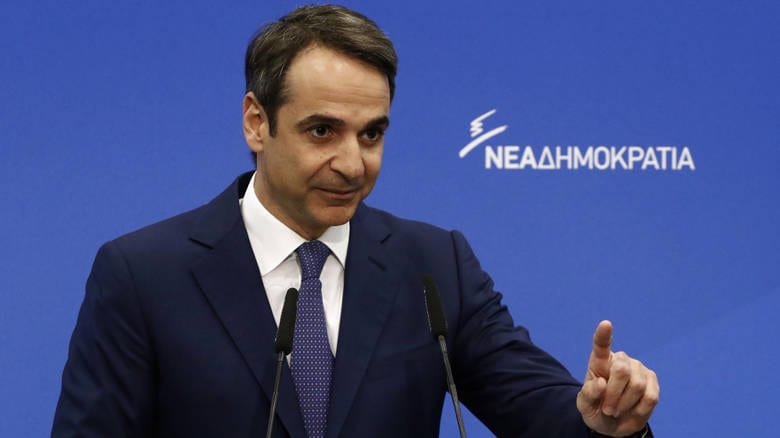By winning an outright majority in Greek Parliament in the 2019 elections, Kyriakos Mitsotakis has completed a first among McKinsey & Company alumni by becoming the outright leader of his country. Son of a former Prime Minister, Mitsotakis has wasted little time in setting out his stall, moving to attract foreign investment to Greece while strengthening his executive powers significantly.
McKinsey & Company is arguably one of the world’s most prestigious consulting firms. The largest of the MBB trio at the top of the strategy consulting segment, the firm boasts a number of high profile alumni, including a long list of government ministers and politicians. Among them are William Hague, former Foreign Secretary of Britain; Bjarne Corydon, former Finance Minister of Denmark; Mathews Burwell, former U.S. Secretary of Health and Human Services; and Pete Buttigieg, the incumbent Mayor of South Bend, Indiana who is among the candidates vying to be the Democratic Party’s 2020 Presidential nomination.
Now, following a landslide election victory in the national polls earlier in 2019, Kyriakos Mitsotakis has added to that list by becoming Greece’s new Prime Minister. While ex-McKinsey staffers are not uncommon in public office, then, this represents a first for the firm’s alumni network, as Mitsotakis takes the top role in his nation’s Government. The 51-year-old leads the right-wing New Democracy Party, which holds 158 of the 300 seats in the Vouli, the Greek Parliament. It is the first time in 10 years that a single party has managed to win enough seats to form a stand-alone majority.
Mitsotakis arrives in office having been born into a family dynasty deeply embedded in Greek politics. At the time of his birth his family had been placed under house arrest by the Greek military junta that had declared his father – former Prime Minister Constantine Mitsotakis who died in 2017 – a persona non grata and imprisoned him on the night of the coup. In 1968, with the help of then Turkish Minister of Foreign Affairs İhsan Sabri Çağlayangil, the family escaped to Turkey, when Mitsotakis was one year old, from where after a while moved to Paris and could only return to Greece in 1974, when democracy was restored.

While his sister Dora was Foreign Minister between 2006 and 2009, however, Misotakis himself took a more round-about route into political life. As a graduate of Harvard and Stanford, he joined Chase Bank as an analyst in London early on in his career, ahead of a two-year stint in McKinsey’s office in London. During his stay in the British capital, he focused on financial services and telecommunications. Following his career in the private sector, he focused mainly on private equity, notably at the National Bank of Greece, where he became CEO before retiring in 2003, and devoting himself fully to politics.
In terms of policy, Mitsotakis represents a radical change of style from the ousted Syriza Prime Minister Alexis Tsipras. Greece’s previous slide towards economic collapse has previously been blamed upon cronyism, nepotism and political patronage, and aware of his own party’s role in that drama – with New Democracy having traded power with the social-democratic Pasok for decades – one of Mitsotakis’s first acts was to ban the appointment by government officials of relatives to posts, a rule which, ironically for the son and brother of former government figures, he said he would be the first to adhere to.
Speaking after his swearing in as Prime Minister, Mitsotakis commented, “We have been given a strong mandate to change Greece. The hard work begins today. I have absolute confidence in our abilities to rise to the occasion.”
Rapid change
Critics of Mitsotakis claim the change he will bring is not nearly so benevolent, however. While Mitsotakis symbolically removed police vans and barriers – which had come to represent the Tsipras government’s fear of protest – from the road approaching the Prime Minister’s office, critics of the new government have pointed to a number of controversial measures seemingly giving the police more power to crack down on dissent. Mitsoktakis has brought the secret services, the Public Service Broadcaster and Athens News agency under his direct control, while handing control of prisons and migrant/refugee centres to the police force.
More broadly, Mitsotakis is keen to oversee a neo-liberal overhaul of the country’s economy to make it appeal to international investors and improve the business climate. This is currently seeing him wage war on a number of initiatives put in place by the previous government. While Syriza did implement austerity demands from the EU and IMF, it also initiated a number of attempts to protect Greece’s most vulnerable citizens from the brunt of those measures. These policies are something Mitsotakis has wasted no time in setting his sights on, in order to offer up space for private companies to charge Greeks for services they previously relied on being publically paid for.
Writing for political magazine Chartist, Marina Prentoulis, Senior Lecturer in Media and Politics at the University of East Anglia, suggested that such moves paint a troubling picture of what could be to come. She suggested that while “the national and international media are trying to present Kyriakos Mitsotakis as a moderate-moderniser,” this would be to ignore a gradual shift to the right which New Democracy has undertaken on his watch to pick up votes from the far-right.
Prentoulis explained, “As is happening across Europe, including Britain, the traditional party of the right has been adopting, and making mainstream, the discourses of the far-right. And it has been precisely figures on the far-right wing of the party – including politicians like Adonis Georgiadis (former Minister of Health before the SYRIZA/ANEL government… responsible for having left millions of unemployed with no health cover) – who have been pivotal in assisting New Democracy and bringing it to power.”









